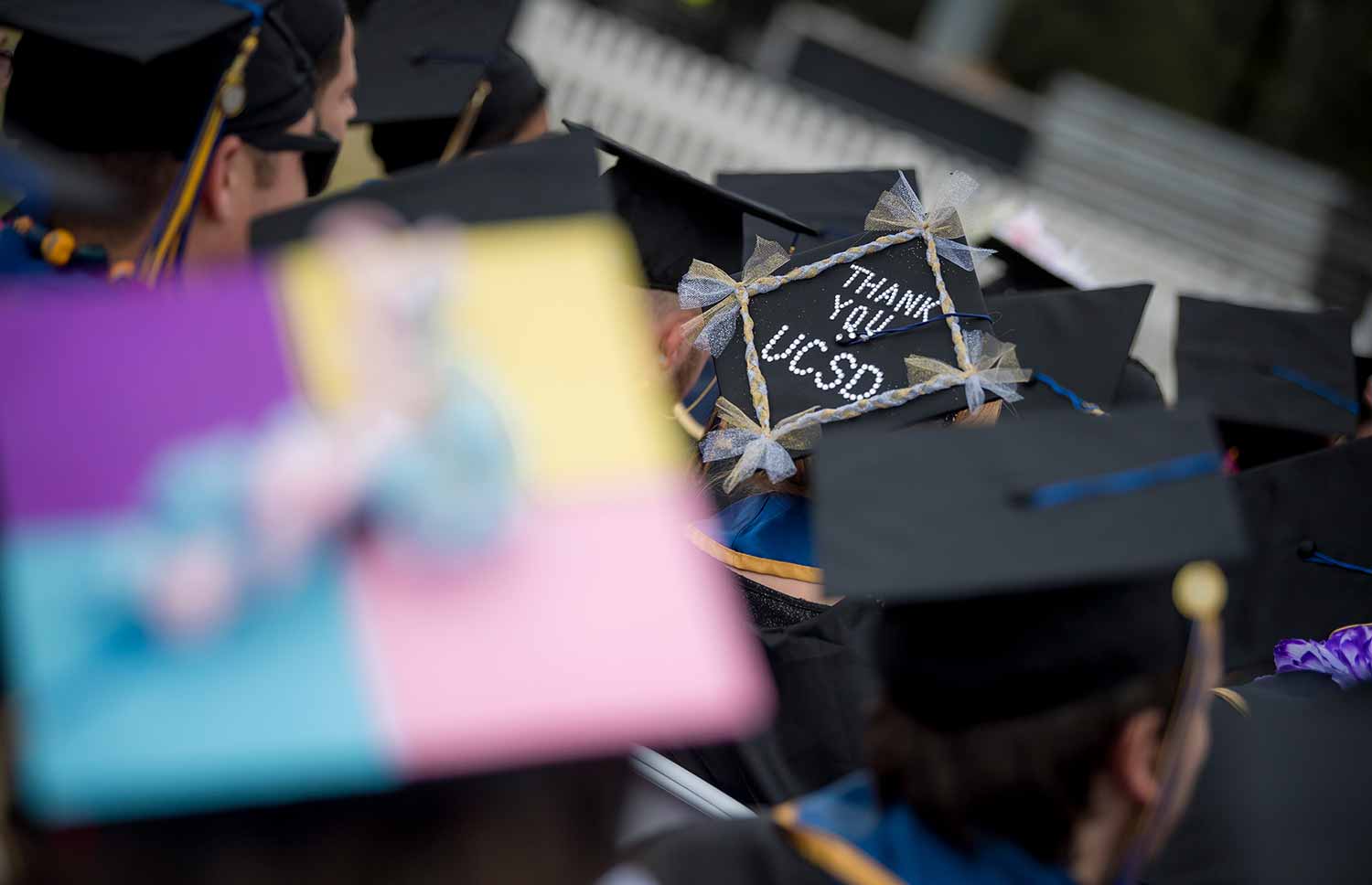By:
- Debra Bass
Published Date
By:
- Debra Bass
Share This:

UC San Diego Helping More Californians Gain Skills, Degrees
Approximately 10 percent of freshmen and transfer entrants begin their degree coursework at University of California campuses but never complete their degrees. It’s not just a loss to students but to the greater community as well, and the state and now the University of California are looking into finding a solution.
The UC system received $15 million in state funds this year to address the issue of college students who do not attain degrees. UC is exploring ways to recruit Extension schools throughout the state to support undergraduate degree completion and education alternatives. UC San Diego Extension’s Research and Evaluation Center is providing the analysis that will help determine how funds should be spent by identifying the needs of non-graduates as well as helping the University of California evaluate the program’s success.
Over the last decade, more than 50,000 former UC undergraduates never completed their degree. Current estimates are that 3.5 million adults in the state didn’t complete a college degree, and the grant will explore pathways to change that and introduce former students to alternative certificate programs to boost professional skills.
It’s well documented that a university degree or credential can have significant economic impacts on families and communities.
California needs to increase the skills of its labor force to remain competitive and contribute to the upward mobility of communities and families, and the University of California—with the help of UC San Diego Extension’s Research and Evaluation Center—is poised to help.
UC San Diego Extension’s research will uncover what percentage of individuals would like to come back and complete their degree versus taking part in an Extension program to increase opportunities for career advancement.
The $15 million grant is aimed at addressing a perceived gap in education. But first, we have to understand why students decided not to complete their university degree.
“We are focused on improving the social and economic opportunity of every Californian and assuring that their needs are being met,” said Josh Shapiro, assistant dean of Innovation and Research Affairs at UC San Diego Extension. “Understanding the needs of non-graduates, what barriers exist to upskilling and even whether a degree, a certificate or a bootcamp would best serve their interests is a critical part of our research endeavor.”
Shapiro’s department will launch a comprehensive California workforce study to better align regional workforce needs with the supply of learners. In this way, the study will pinpoint the best pathways and opportunities for individuals looking to come back and advance their education and careers locally and across the state.
The Center for Research and Evaluation will study the problem from multiple angles but will generally be broken down into two phases. During the first phase, Extension will conduct an assessment of the characteristics of degree completers in California.
This will include understanding the demographics of degree completers, identifying institutions with high percentages of completers, and collecting information about the challenges people face in completing their degrees and after earning a degree.
The study will also focus on the distinguishing characteristics of schools with the highest number of degree completers.
“A key component will also involve researching how much emphasis do employers place on degree completions compared to other educational awards, such as certificates so that we can better understand the most efficient and cost effective strategies for upskilling students once recruitment efforts begin,” Shapiro said.
The second phase targets analysis to understanding state and regional job markets, identifying areas of growth, and mapping job demand with current university degree and Extension certificate offerings.
The presumption is that a university degree can change lives. Similar effects also have been found for those who earn professional workforce-related certificates. Recent estimates show that UC bachelor degree recipients earn $260,000 more over a 10-year period than UC undergraduates that leave with no degree.
These former UC students who did not receive degrees are also less likely to own a home, have health insurance or retirement benefits and contribute less in state and federal taxes. Solving this problem with education could solve many tangential economic issues, especially at a time when there is rampant unemployment. An estimated 42 percent of jobs eliminated because of the COVID-19 pandemic will not return, and new pathways to careers are essential as industries embrace a new expanded work-from-home culture.
Share This:
You May Also Like
Stay in the Know
Keep up with all the latest from UC San Diego. Subscribe to the newsletter today.



